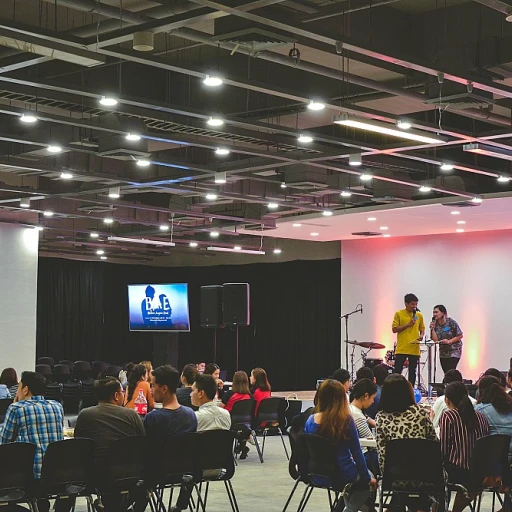The Intersection of AI and Human Resources
AI's Integration Into HR Practices
The integration of artificial intelligence into human resources represents a transformative shift, particularly in bustling hubs like San Francisco. As more companies adapt to these advancements, understanding how AI interacts with hr practices becomes crucial. For instance, the interplay between AI and the Health Care Security Ordinance (HCSO) can redefine how covered employers approach healthcare compliance. AI-powered tools are increasingly being deployed to ensure employers not only meet required health expenditure levels but also enhance employee benefits. Through data analysis and pattern recognition, AI allows for a more refined compliance strategy. This ultimately ensures covered employees receive appropriate care security benefits, aligning with the ordinance's requirements. However, while AI technologies promise streamlined operations, they necessitate a meticulous understanding of related compliance elements. The complexities surrounding the HCSO and the city's required health care expenditures demand that employers leverage AI intelligently. As these tools navigate through nuanced compliance landscapes, they redefine the relationship between employers and employees in terms of care benefits and expenditure. To stay updated with these evolving trends, exploring topics such as disparate impact and AI within HR is crucial. By keeping abreast of these shifts, employers can align their HR practices to benefit both their operational needs and their workforce. For some insights, the article on disparate impact and AI in HR offers valuable perspectives.Navigating the Health Care Security Ordinance
Understanding San Francisco's Health Care Security Ordinance
The Health Care Security Ordinance (HCSO) in San Francisco plays a crucial role in ensuring that employees receive the health care benefits they are entitled to. This city-mandated regulation requires that covered employers make health care expenditures on behalf of their covered employees. In the context of San Francisco, the ordinance mandates specific requirements for employers. These include an established expenditure rate and annual reporting to ensure compliance. Employers are required to pay for health care expenditures based on hours payable. The goal is to ensure covered employees receive adequate care benefits. San Francisco's ordinance serves as a benchmark, displaying the local commitment to elevating employee benefits. Understanding its complexities is vital for employers aiming to meet compliance requirements efficiently and effectively. For more insights on the implications of such regulations, you can refer to this article on disparate impact and AI in HR. Navigating the intricacies of this ordinance can be challenging. It's crucial for employers to assess their existing health plans and ensure they align with the care security standards set by the city. They must also consider how AI-driven solutions can assist in maintaining compliance, which will be explored later in this article.AI-Driven Compliance Solutions
AI Solutions for Streamlined Compliance
Artificial intelligence plays a pivotal role in helping organizations adhere to the Health Care Security Ordinance (HCSO) compliance requirements. As San Francisco employers navigate these regulations, AI-driven compliance solutions provide critical support to streamline processes, ensuring businesses meet their obligations efficiently. The HCSO mandates that covered employers make health care expenditures on behalf of their covered employees. This can include various forms of employee benefits, such as a health care plan or a city option program. AI systems can help employers manage these obligations by automating compliance checks and providing detailed reporting on care expenditures.- Automating Documentation: One of the significant challenges for employers is the requirement for detailed reporting of health care expenditures. AI solutions, designed to streamline the documentation process, can automatically track and record all employee-related expenditures. This saves employers a significant amount of time and reduces the likelihood of human error.
- Predictive Analytics for Expenditure Rates: AI tools can utilize predictive analytics to forecast future health care expenditure rates, helping employers budget effectively for required health care benefits. This proactive approach ensures compliance while optimizing financial resources.
- Real-time Monitoring: AI can facilitate real-time monitoring of compliance standards, instantly flagging any discrepancies that may arise. By providing immediate alerts, AI-enabled systems ensure that organizations remain consistently compliant with the ordinance requirements.
Enhancing Employee Data Privacy with AI
AI's Role in Safeguarding Employee Data
In the evolving landscape of human resources, the integration of artificial intelligence (AI) is proving to be a game-changer, particularly in enhancing employee data privacy. With the Health Care Security Ordinance (HCSO) in San Francisco, there is an increased focus on protecting the personal information of covered employees. Employers are required to adhere to strict compliance requirements, ensuring that employee benefits and health care expenditures are managed securely.
AI technologies can significantly bolster these efforts by automating data protection measures and ensuring compliance with the ordinance. For instance, AI systems can monitor data access patterns to detect any unauthorized attempts to access sensitive information. This proactive approach helps covered employers maintain the integrity of employee data while fulfilling their obligations under the HCSO.
Balancing Compliance and Privacy
Compliance with the HCSO involves annual reporting and managing health care expenditure rates effectively. AI-driven solutions can assist employers in navigating these requirements by providing real-time analytics and insights. These tools can help identify discrepancies in health care expenditures and ensure that the required health benefits are provided to all covered employees.
Moreover, AI can help employers implement the City Option for those who do not meet the required health expenditure rate. This ensures that all employees receive the necessary health care benefits without compromising their privacy. By automating these processes, AI reduces the administrative burden on employers while enhancing the security of employee data.
Challenges and Ethical Considerations
Despite its advantages, the use of AI in safeguarding employee data also presents challenges and ethical considerations. Employers must ensure that AI systems are transparent and that employees are informed about how their data is being used. Additionally, the reliance on AI for compliance and data protection should not overshadow the need for human oversight.
As AI continues to evolve, it is crucial for employers to stay informed about the latest developments and ensure that their AI solutions align with the ethical standards and compliance requirements set by the HCSO and other relevant regulations.












